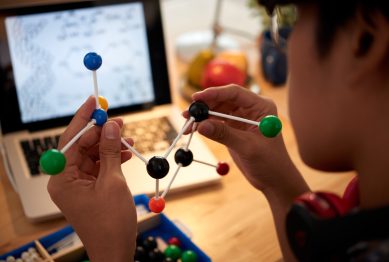In today’s polarized world, disagreement often leads to defensiveness rather than growth. Whether in politics, social issues, or even workplace dynamics, it’s easy to dismiss opposing views and cling to our own beliefs. But what if, instead of immediately rejecting ideas we disagree with, we chose to learn from them? Embracing conflicting viewpoints can be a powerful tool for personal growth, enhancing critical thinking, and improving communication skills.
In this article, we’ll explore why learning from what you disagree with is essential, how it can lead to better decision-making, and practical ways to incorporate this mindset into your everyday interactions.

Why Learning From What You Disagree With Matters
Before we dive into how to learn from disagreement, let’s first understand why it matters. Disagreement is not just a difference of opinion—it’s an opportunity for self-reflection, growth, and deeper understanding.
1. Expands Your Perspective
When we engage with ideas that challenge our own, it forces us to expand our mental horizons. We learn to understand viewpoints that might otherwise be hidden from us, leading to a more nuanced perspective on the world.
- Example: A person who always consumes media that aligns with their beliefs might miss out on critical issues or alternative solutions that could lead to better decision-making.
2. Improves Critical Thinking Skills
Disagreement compels us to critically examine our own beliefs. When we engage with opposing ideas, we are forced to question the validity of our assumptions, which strengthens our ability to think critically. This process of questioning and evaluating strengthens our decision-making and problem-solving skills.
- Research: A study from Harvard University found that engaging with diverse perspectives is directly correlated with improved cognitive flexibility and problem-solving abilities, as it encourages individuals to think from multiple viewpoints.
3. Fosters Open-mindedness
Learning from what we disagree with encourages open-mindedness. It pushes us to step outside our comfort zones and consider ideas that challenge our worldviews. By embracing open-mindedness, we can become more empathetic, adaptable, and collaborative, leading to stronger relationships and better teamwork.
- Example: In a professional setting, leaders who listen to opposing viewpoints create environments where employees feel heard and valued, leading to higher job satisfaction and innovation.
How to Learn From What You Disagree With: Practical Strategies
Now that we understand the importance of learning from disagreement, let’s explore how to make this process actionable. Here are several strategies to help you engage more thoughtfully with ideas you disagree with.
1. Listen Actively, Not Defensively
The first step in learning from disagreement is to listen actively. This means giving the other person your full attention, without preparing your counter-argument while they are speaking. Active listening allows you to fully understand their perspective, which is essential for engaging meaningfully with opposing views.
- Actionable Tip: Practice active listening by focusing on the speaker’s words and asking clarifying questions. For example, “Can you explain why you feel that way?” or “What led you to this conclusion?” This helps you better understand their reasoning before forming a response.
2. Seek Common Ground
Even when we disagree, there is often some common ground to be found. Instead of focusing on the differences, try to identify shared values or objectives. This not only opens the door to productive conversations but also makes it easier to understand the underlying concerns that drive opposing views.
- Actionable Tip: Before addressing the areas of disagreement, acknowledge the points where you agree. For instance, “I understand that we both want to improve the situation, even if we have different ideas about how to do it.” This approach creates a collaborative atmosphere, making it easier to navigate the disagreement constructively.
3. Challenge Your Own Beliefs
To learn from what you disagree with, you must be willing to examine your own beliefs. This requires humility and self-awareness, as it’s easy to become attached to our opinions. Challenge yourself by considering whether your beliefs are based on sound reasoning or if they have simply become habits.
- Actionable Tip: Engage in intellectual humility by periodically questioning your own views. Ask yourself, “What evidence do I have to support this belief?” and “Could I be wrong?” This exercise helps you remain open to alternative viewpoints while strengthening your ability to make informed decisions.
4. Engage in Constructive Dialogue
When you disagree with someone, aim for a constructive dialogue rather than a combative debate. This means approaching the conversation with curiosity, rather than trying to “win” the argument. Respectful disagreement fosters learning, whereas heated arguments often reinforce biases and impede growth.
- Actionable Tip: Frame your disagreements in a way that invites dialogue, not conflict. Instead of saying, “You’re wrong,” try, “I see things differently, and here’s why.” This encourages mutual respect and opens the door to a productive exchange of ideas.
5. Be Open to Changing Your Mind
Perhaps the most powerful way to learn from disagreement is by remaining open to changing your mind. This requires courage and flexibility, as it’s not always easy to let go of long-held beliefs. But when we allow ourselves to change our perspective, we grow as individuals and become more capable of making better decisions.
- Actionable Tip: When presented with a compelling argument that challenges your beliefs, resist the urge to immediately dismiss it. Take time to reflect on the information, research the topic further, and allow your views to evolve if necessary.
The Psychological Benefits of Embracing Disagreement
Learning from what you disagree with offers more than just intellectual benefits—it has significant psychological advantages as well. Engaging with opposing views and challenging your beliefs can boost your mental resilience, enhance your emotional intelligence, and contribute to a healthier mindset.
1. Increased Emotional Intelligence
When we engage with people who disagree with us, we develop empathy and emotional intelligence. Listening to their concerns and emotions, and acknowledging their point of view, helps us better understand the human element behind differing opinions.
- Research: Studies from The Daniel Goleman Emotional Intelligence Consortium show that people who engage in empathetic conversations tend to have higher emotional intelligence, which improves their interpersonal relationships and problem-solving skills.
2. Reduced Bias and Prejudice
Consuming information from a variety of sources, including those that challenge our views, helps reduce bias and prejudice. When we actively engage with diverse perspectives, we become less likely to generalize or stereotype others based on our limited experiences or preconceptions.
- Example: Engaging in discussions with people who have different cultural backgrounds or political beliefs helps to dismantle stereotypes and fosters a more inclusive worldview.
3. Enhanced Personal Growth
At its core, learning from disagreement promotes personal growth. It helps us expand our thinking, challenge our assumptions, and become more open-minded. Over time, this fosters greater resilience, adaptability, and intellectual maturity.
- Example: People who regularly engage with opposing ideas and reflect on their own biases are better equipped to navigate complex situations, whether in their personal lives or careers.
Conclusion
Disagreement is inevitable, but it doesn’t have to be a source of conflict. By approaching disagreement with an open mind and a willingness to learn, we can turn opposition into an opportunity for growth. Whether at work, in social settings, or online, embracing ideas we disagree with challenges our thinking, broadens our perspective, and helps us make better, more informed decisions.
In today’s polarized world, learning from what we disagree with is more important than ever. It fosters collaboration, empathy, and innovation—qualities that are essential for creating positive change and advancing personal and professional growth. So, the next time you find yourself in a disagreement, resist the urge to close off. Instead, lean in, listen actively, and see how much you can learn from the experience.
Reference
- Disagreement Enhances Critical Thinking & Cognitive Flexibility, https://psycnet.apa.org
- Diverse Perspectives Improve Problem Solving, https://www.scientificamerican.com
- Emotional Intelligence Increases Through Empathy and Conflict Engagement, https://www.danielgoleman.info









